Interview with Takayuki Hirao, Director Takayuki Hirao of the anime movie 'Pompo who loves movies', How did you make the work 'Minority rewards the majority' so that it can be conveyed to the majority?

The anime movie ' Eiga Daisuki Pompo-san ', which is based on a manga that has become very popular online, is a hit. This work was directed by
Theatrical animation 'Pompo who loves movies' official site
https://pompo-the-cinephile.com/

If you also read an interview with Shogo Sugitani, the original author, you may be convinced that there is a part of it that makes sense.

GIGAZINE (hereinafter G):
Along with the release of the movie, Director Hirao has answered various interviews, so I would like to ask various questions based on the content of those interviews. First of all, the Animate Times
Director Takayuki Hirao (hereafter, Hirao):
When I was in the lower grades of elementary school, I began to stutter. Even now, I get nervous. Also, I have blush, and there was a time when I couldn't talk to people. I stuttered when I spoke, so I was teased, and I think I only had one friend. In other words, I got out of my surroundings. At that time, I had the experience of being “saved” by a movie with characters in a similar situation.
G:
I see.
Hirao:
It's not like I was conscious of it when I was little, but I feel like I've been saved by works like 'people who have fallen out of society are rewarded with a single arrow.' For example, ' Young Gun '. It's a movie that gathers young actors of the time to make a Western movie, and it's not a high-class work, but I was attracted to the story of Billy the Kid being hunted down as an outlaw and rewarding those in power. I was.
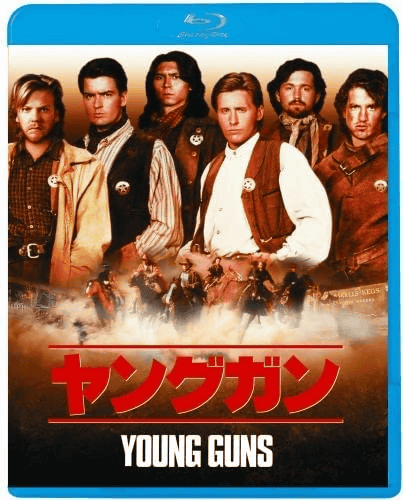
Hirao:
I also liked Nadia
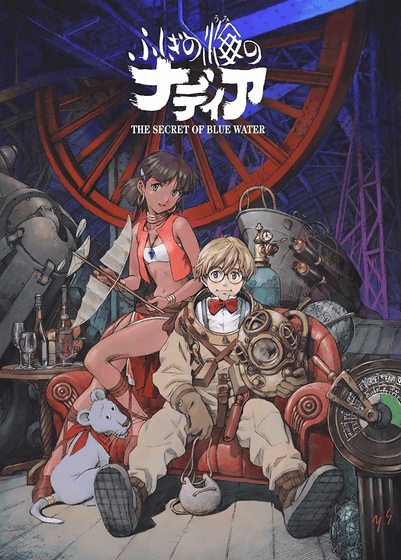
Hirao:
I also like Mobile Police Patlabor . I think it was such a place when I traced it.
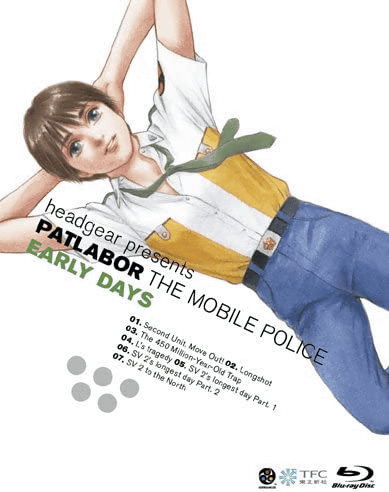
Hirao:
If it's a manga, it's ' AKIRA '. I have a brother who is 5 years older than me, and I let him read what I bought. In 'AKIRA', it's Tetsuo rather than Kaneda.
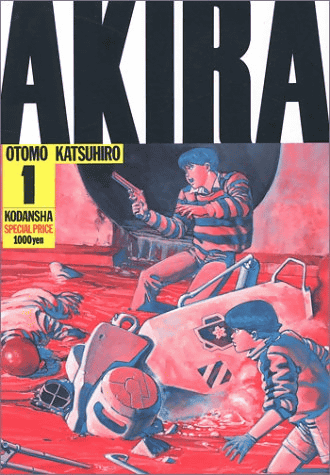
G:
(smile)
Hirao:
Tetsuo is not recognized by his peers, but it is said that he gains power and goes berserk. Tetsuo himself has taken a turn for the worse, but I really understand how he feels.
G:
I thought that this 'minority gives a blow to the majority' is a universal and good theme. On the other hand, as it was touched on in the 'Ponpo-san' work, it is also necessary for the work to stick to the majority. How did you balance the minority feeling and the majority feeling around that? Or do you feel like you broke through without thinking about balance?
Hirao:
Even if I had the theme of 'a minority giving a blow to the majority', if the style, narration, direction, etc. were all minorities, the majority might not have a clue. So, although it's meta, I was conscious of 'creating a story where the minority rewards the majority' so that it can be conveyed to the majority as well. I wanted the work 'Pompo-san' to spread throughout the world, and at the same time, I wanted it to be a cheering song for everyone who is chasing their dreams, so the character Alan was necessary, and I wanted it to be widely shown as entertainment. I tried to make the story easy to understand in order to make it possible.
G:
Including Alan-kun's part, there are various original parts that were not in the original, but on the other hand, I heard that various scenes were cut out with an iron will in order to shorten the running time to 90 minutes. In the end, what were the original elements and episodes that were included but not the remaining parts?
Hirao:
There was one scene in the script that delved deep into Jean's past that I can immediately recall. Some of it remains in the main story, but I wrote two to three pages about why Jean became obsessed with the movie, interpreting it in the movie version.
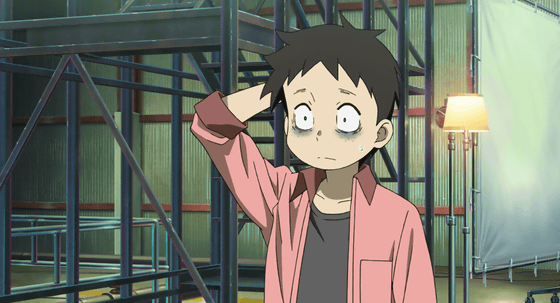
Hirao:
Also, there was a little more volume than the main part of 'What is editing?' It is said that Natalie, who was present at the editing of the diner where Pompo-san and Mystia-san were talking in the main story, and whose scenes were cut too much, comes home crying.
G:
(smile)
Hirao:
I cried to Mr. Pompo, but Mr. Mystia and Martin said, ``A lot of the things I appeared in have been cut. There was a scene that made me say, 'I'm glad I did.'
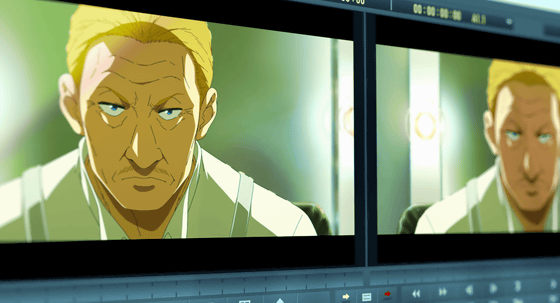
Hirao:
Also, the bank scene was actually longer. From the main part, I carefully drew the part about the president and the process of transmitting to the whole world. For example, when the president knows that it is distributed all over the world, it can't be helped, so he takes advantage of it to improve the bank's image. In the main part, it was only hinted at, but in the script, it was a little more clear. In that way, there were various scenes that I wanted to put in, but I cut them along the line that was barely noticeable, according to the 90-minute frame.
G:
I thought that the 'fundraising by crowdfunding' that comes out at the bank you just talked about is a realistic method, but have you or someone close to you experienced it?
Hirao:
At the time of the plot, Alan started looking for his own job after being removed from his job.
G:
(smile)
Hirao:
I built it up in the form of making it a story that wouldn't be strange even if it happened at the last minute. ……Is that what I was thinking from the beginning?
Producer Ryoichiro Matsuo (hereinafter referred to as Matsuo):
Was that so? I think he said, 'Let's do crowdfunding.'
Hirao:
Based on the script I once wrote, I interviewed the production committee and people who worked in Hollywood, asking, 'Is it possible for a bank to finance a movie?'
G:
In the Animate Times interview I mentioned earlier, there was a discussion about art, and Director Hirao and assistant director Kanji Miyake acted as 'art supervisors' for the art they gave me, saying, 'I really did the final work of adding a world view. There is a line that says, 'I'm doing it until the last minute.' What kind of thing was this 'work to add a world view'?
Hirao:
Well... For example, if you have a white wall and you paint it, normally you would use a gradation of white and gray that fades from white to match the light source, but in 'Ponpo-san' you don't use white, you paint it with a greenish or bluish tinge. I put the color of the light source in the shadows, and put pink and cyan in the border of the gradation. The art you gave us was solid, as if it were real, but it feels like Mr. Miyake and I did the work of 'putting in this little pink and green in the world of 'Ponpo-san''.
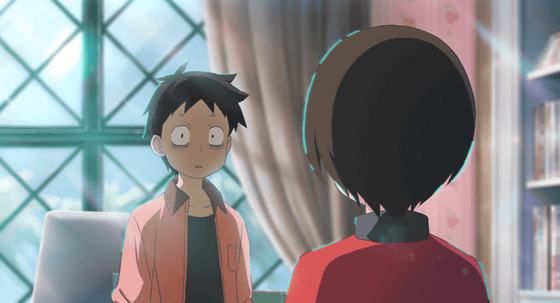
G:
It feels like I did a final brush-up. In the same interview, Director Hirao said, 'It depends on the person, so I can't say for sure, but I sometimes think that I can't write a story of hope for happy people. In fact, Mr. Pompo also called it a 'creative mental activity', and I think there is a part of it.' What kind of painful things did you feel that affected your 'creative mental activities'?
Hirao:
To be honest, the first thing I mentioned earlier was that I had a hard time stuttering as a child. Also, when I was working under Director Satoshi Kon , I learned a lot, but no matter what I did, I couldn't get the approval, and I was keenly aware of my own powerlessness (laughs). And the evaluation of ' God Eater ' was not good.
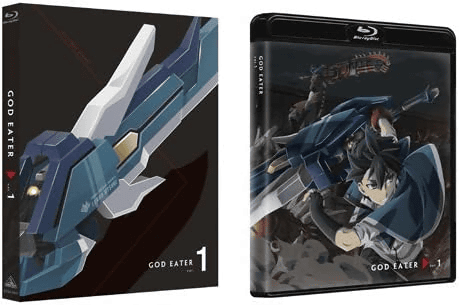
Hirao:
'God Eater' was done from the storyboards to the screenplay by myself, and although there are points to reflect on, I intend to make it interesting, but in the end I had to leave
G:
Oh, I see.
Hirao:
I ended up leaving ufotable without really deciding on my next job, so I clung to the straw and called Tetsuro Araki , the director of Attack on Titan , asking for a job. Then, I was in the middle of working on Kabaneri of the Iron Fortress , so about a week after finishing God Eater, I was taken care of by WIT STUDIO . It was really helpful at that time.
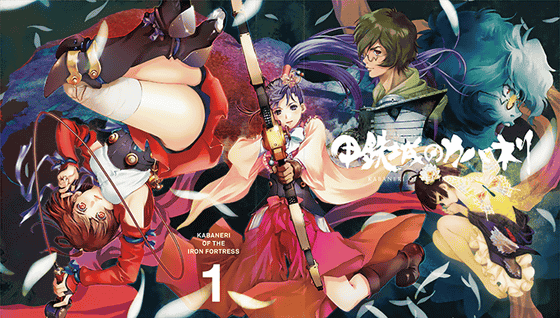
Hirao:
I helped with the storyboards, and if you include the second season of 'Attack' , it's been more than a year...? While I was indebted to you, there was a time when I was very frustrated while watching everyone around me shine. However, it was also a time when I really thought about what I should make next, and I think that was the core of the movie version of 'Ponpo-san.' So, when I think about it now, I'm glad I had that period, including the fact that I left ufotable. I think it was a very important time for me.
G:
Denfa Minico Gamer has an interview with Director Hirao with Mr. Tomizawa of Bandai Namco, saying, ``When the story of `` Pompo-san '' came out, I was just writing a novel. Is this referring to ' Beast Prince and Beast Princess ' that came out in 2019?
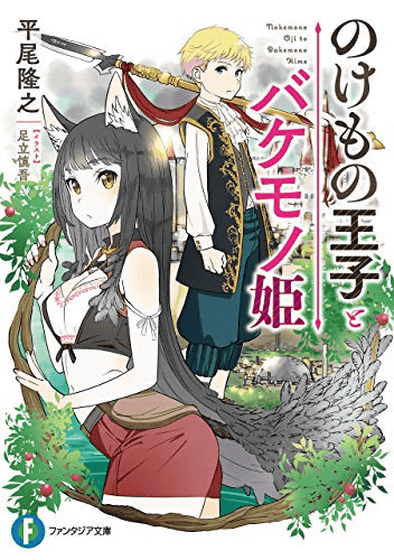
Hirao:
When I was able to put into words what I wanted to make when I was frustrated, whenever I had the chance, I would talk to various people saying, 'I want to make something like this.' Until then, I didn't say anything at all, but I tried to talk. Among them, there was a person who called out to me, 'Then why don't you write it?'
G:
Yuichiro Momose 's name came up in the afterword of 'The Beast Prince and the Beast Princess', and I thought, 'Is that so!'
Hirao:
Momose-kun helped me with the production of ' Sakura no Ondo ', which I directed, and we got along well. He became a novelist after many twists and turns, and we used to eat together. If you can write it, let's write it.' So, I was introduced to Mr. Arima, who was in charge of editing.
G:
In an interview with Akihabara Research Institute , it was learned that the editor in charge of the novel was editing the manga during the writing meeting for 'Prince Nokemono and Princess Bakemono', and there was talk of publishing 'Ponpo-san' from KADOKAWA. There is a story that it led to preparations for animation. In the life of Mr. Hirao, is it a common occurrence for fate to lead to fate?
Hirao:
No, this was my first experience. After leaving ufotable, there were several people who said, 'If we have another chance, let's work together.' One of them was Mr. Tomizawa. It can't be helped, but I thought I'd cherish the ties that connect us. So, when Momose-kun contacted me, I thought, 'I want to cherish the connection that made me talk to you.' So when Mr. Tomizawa asked me, 'I'm looking for a publisher to publish 'Ponpo-san,'' I said, 'I'm writing a novel, so would you like to attend the meeting?' hand. At that time, Matsuo-kun, who was going out to eat, had just launched CLAP , and it felt like we were connected at once.
G:
In the same Akihabara Research Institute interview, director Satoshi Kon said, 'I was asked, 'Do you want to be a director, do you want to be a director, or do you want to be a writer?'' After this, Director Hirao said, 'There was a time when I thought I was a director, and there were times when I was worried about whether I should devote myself to being a professional director. The thing is, I'm not suited to be a director who can handle any kind of original work.' I thought about that first. I thought about it carefully before I accepted 'Ponpo-san'.Is it like finding the right place by reconciling the original work and myself?' In addition to the major theme of ``the minority rewarding the majority,'' are there any other aspects of this film that directly reflect the feelings and thoughts of Director Hirao?
Hirao:
The first person I could relate to in the original work was Gene. I was able to empathize with the story of a person who was kicked out because he didn't fit in with society and eventually shines in the world of movies. When I read from there and thought about how to make it into a movie, I wanted to make this movie a cheering song for everyone's dreams. I thought that in order to 'fulfill', I also needed to be prepared to throw away other options. I think Gene must have tried to fit in with himself before being repelled by society. However, I thought that there was a history of choices that I made in myself that I could not do this, I erased this as well and looked for it, and the only thing that remained was the movie. And I wanted to make a movie that affirms the chosen present. Then, when asked about the actual process of making a movie that can put that message in, I said, 'Editing.' I tried to consolidate the drama and climax there.
G:
Hmmm.
Hirao:
In Pompo-san, the first thing Jean-kun was recognized for was his editing. But before the Nyakademy Award, the original cuts off at the point where I say, 'I'm going to edit 'MEISTER' from now on.' This is beautiful in its own way, but if it were to be made into a movie, it would be here, and I thought that there should have been a drama here, so I tried to bring the theme I mentioned earlier there.
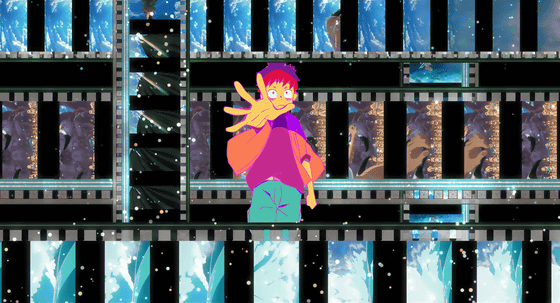
G:
In the same Akihabara Research Institute interview, Mr. Ima also talked about other things, and he told the young director Hirao, who said that directing was his goal in itself, 'Directing is how to make delicious food using what already exists. A director is like the owner entrusting the restaurant to you, and a writer is someone who makes people want to see what they have created and makes a living out of it. I think that's what it means, so I have to decide where I want to be.' Director Hirao, how do you see yourself now?
Hirao:
That's the really difficult part. What I thought while working on 'God Eater' was that I wasn't the kind of person who could process whatever original work I was given. So, I decided to become a person who can bring out what I want to create in myself, create works with a high synchro rate if it is an original work, and create an original theme if it is an original work. In the end, if you don't, you'll lie to yourself and cause trouble for the original work. Even if you make it, you'll be dissatisfied, or you'll end up with something you couldn't finish. …… In that sense, it may be “not a decent director” (laughs).
G:
Director Hirao said, ``Every time I finish one of my works, I make a point of thinking, ``I couldn't do this,'' and ``What should I have done here?'' The work is still open to the public, but do you have any regrets about this work?
Hirao:
Immediately after finishing the work, there will be things like ``I didn't do well here'' and ``I wanted to make it beautiful'' in terms of making the picture, but as time passes, the flow and the script gradually change. On the surface, 'I should have done a little more here' comes out. I can see that I should have made it easier to understand, maybe I could have expressed it more clearly. A detailed example is when Jean collapses in the editing room and is taken to the hospital. At that time, Natalie came and asked, 'Are you ready in time?' Jean turned around and said, 'There's still a week left.' Do you remember what was in front of your eyes?
G:
ahead of your line of sight. It's like seeing a week on a calendar.
Hirao:
The first time Jean looked back, one of the pins on the calendar on the shelf had come loose and was about to fall. Jean returns his eyes to the monitor once, looks back again, and tries to fix the calendar, but he collapses. I don't think so. So what should I do? For example, the calendar isn't about to fall off, and it just falls off when Jean looks back. So, when I got up to check the schedule, I think I could understand without saying, 'Jean got up because he tried to check the schedule on the calendar.'
G:
Oh... I see.
Gene to edit
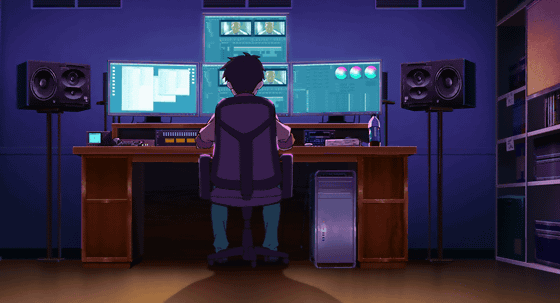
Hirao:
Of course, it's not that the viewer doesn't understand at all because it's complemented in their head, but I think that the accumulation of such fine points will lead to reducing the stress of the viewer. In order to have as many people as possible see 'Ponpo-san', I intended to make it 'understandable' as much as possible. I always think about whether or not.
G:
In an interview with AnimeHack, about the past director Hirao, he said, ' He had blond hair and was dressed like a so-called youth icon .' The current Director Hirao is very ordinary, but was there something like a turning point that changed fashion?
Hirao:
……What happened?
Matsuo:
I would rather ask (laughs). I've been blonde for about a year.
Hirao:
oh yeah. I had blond hair for about a year after joining Madhouse , and then I had gray hair... I can't generalize, but when I look back calmly, I think that I wanted to hide my inner weakness, or that I was expressing myself with my hair color and fashion. After becoming a director and a director, I was able to express what I wanted to express in my work, so I stopped dressing like that.
G:
In the same interview with Anime Hack, Director Hirao, who saw the first Gundam and empathized with Hayato, said to Director Ima, 'You're usually Amuro. Young people like you usually mistake themselves for Amuro.' There is a story that he said, ``Why do you empathize with an ordinary person like Hayato?'' Mr. Hirao, when you watch movies, do you often empathize with ordinary people?
Hirao:
I think he's probably not the type to empathize with so-called geniuses or heroes. Maybe because I was like that, I'm not a hard-working type, but I empathize with people who don't get rewarded even though they're trying so hard, and want to be rewarded more by this person.
G:
This work is characterized by the fact that each character has 'three favorite movies' set, and in the pamphlet, the staff and cast also list three favorite movies. Director Hirao says 'session' '127 hours' 'Goodfellas', but what kind of points do you like for each?
Hirao:
Director Danny Boyle is very good at transitions , and I was impressed with the story in 127 Hours . It turns out that the main character was getting carried away by being able to come home without telling him where he was going, and even so he struggles to live, and in the end he learns a lesson, but there are parts that overlap with himself (laughs).
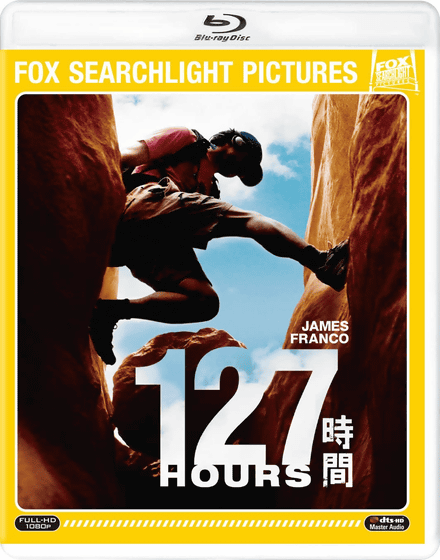
G:
(smile)
Hirao:
'
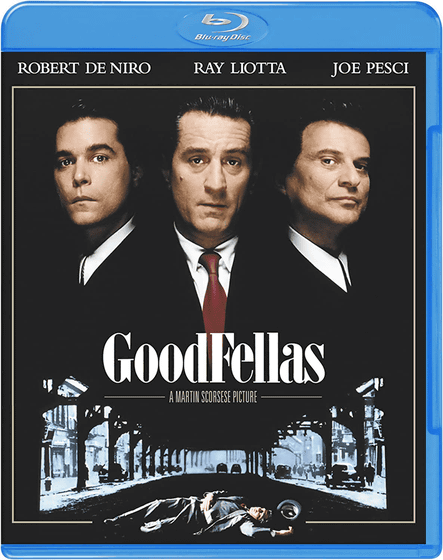
G:
again (laughs)
Hirao:
The same goes for ' sessions '. The main character comes with confidence in himself, but as he is beaten down and defeated, he gradually listens only to the music he plays.
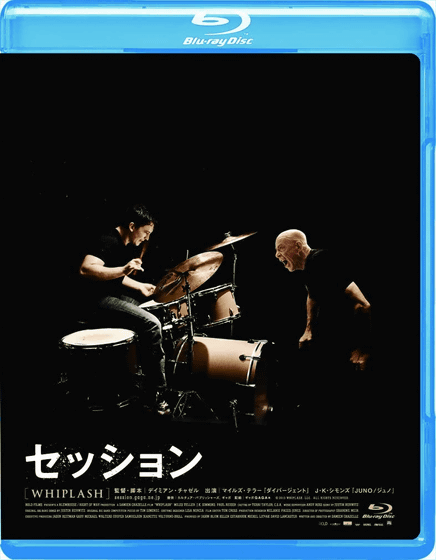
Hirao:
That's what you do even when you're working. When Gene goes to edit, of course he has a reason why Mr. Pompo says, 'All movies with a long running time are bad,' and that everyone is paying for it, so I can't give up, but I'm absorbed in it. As time goes on, it doesn't matter anymore, and I just face the work. I think there are parts that you can't enjoy without those moments. I don't think I understand that either... However, my field of vision is inevitably narrowed. I'm reflecting on it.
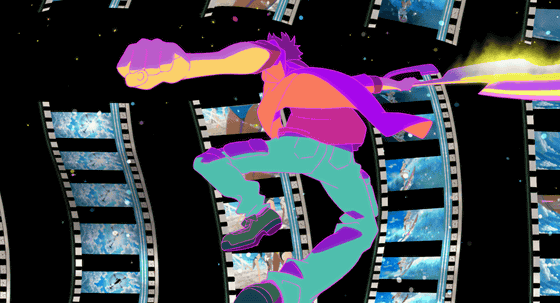
G:
When Director Hirao saw Satoshi Kon, who paid homage to past films in each cut of 'Millennium Actress ,' he said, 'I wondered if it was possible to become a director without such a wide range of knowledge.' Looking back. I got the feeling that this work was done quite well, but as a director and director, what kind of knowledge and experience do you think it is good to have?
Hirao:
I think it was important to stockpile 'moments that touched my heart' as much as possible. This may not be a good example, but it was summer when I got the news that Mr. Kon had passed away. I remember I felt with my own body, 'Oh, is this what it means to be shocked?'
Also, if it's a movie, I guess I'll keep thinking about why I like this work until I can put it into clear words. It's not important to see the numbers, but it's important to understand it properly. I think the reason Ima-san was able to incorporate movie homages into his work was because he understood what he thought was amazing about the work. In other words, I wonder how much I can understand and express what I think is amazing and what I like, and whether I can pursue it. At some point, I started to think about it consciously.
G:
This time, Mr. Shogo Sugitani, the original author, said that he did not intervene in the movie at all after the first meeting. In the manga Mr. Sugitani posted on Twitter, he said, ``There were several things I wanted to confirm, but I didn't know about all of them.'' There was something I wanted you to do (laughs)”, but what kind of points did you want to confirm?
Hirao:
For example, you can tell from the lines that the song Lily is singing in 'MEISTER' is an aria, but what is the song? When I looked it up from the German in the balloon, I knew it was 'Matthew Passion', but if that were the case, there must be a reason why Mr. Sugitani chose Matthew Passion, so I imagined something like that. It feels like I read everything in my own way from the information written in the original work.
Also, 'Ponpo-san' is a work that develops a strange media mix, and when I made the first proposal, it was a time when the first volume had not yet become a comic, but I was writing the script. When I heard that the name of 2 was raised at our house, I thought 'Ah, there was still a continuation!' (laughs). Since what Mr. Sugitani drew is the 'canon', I thought it would be difficult if it deviated from there, but in the end, there were some parts that were off, and some parts that weren't that big of a discrepancy. . In the first place, ``Who is Pompo-san?'' wasn't clearly depicted in the first volume, so we in the movie team had to interpret it in various ways, but in 3, she was a girl who went to school normally. I understood that it was, and my heart was pounding in a good way (laughs). Originally, Mr. Sugitani was planning to end with 1, and based on that, we spent about four years producing the movie version, but during that time Mr. Sugitani drew 2 and beyond, and Mr. Pompo expanded the world of 1 As a fan, I was happy to read the new work, and I am very grateful.
G:
Thank you very much for this long talk.
'Pompo who loves movies' is currently being screened. After the screening at 14:30 on Thursday, July 22nd at Tachikawa Cinema City, a stage greeting will be held to commemorate the best acoustic screening, where Director Hirao and Director of Photography, Mr. Hoshi Meiko will be on stage. At the time of article publication, there are a few vacancies, so if you are interested, please come by.
Theatrical animation 'Movie love Pompo-san' book notice-YouTube
©2020 杉谷庄吾【人間プラモ】/KADOKAWA/映画大好きポンポさん製作委員会
Related Posts:






